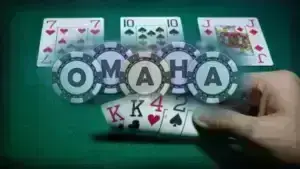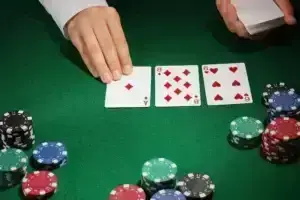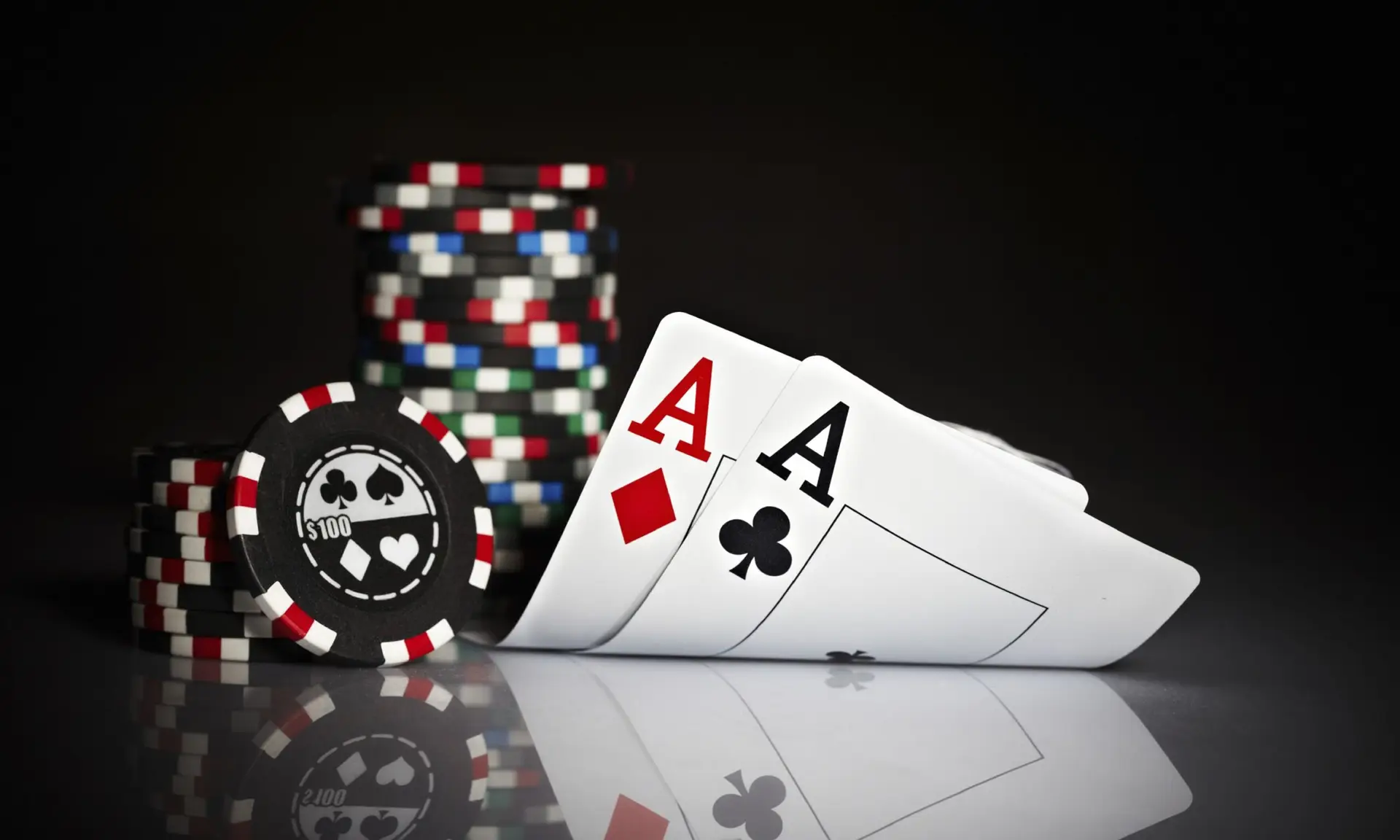Unlike more well-known formats such as Texas Hold’em, Omaha offers unique features and challenges that make poker particularly exciting. It’s a game where one wrong move can take away everything, while the right decision, on the contrary, can lead to a big win.
Features of Omaha poker
To understand the charm of the variety, you need to understand the rules. At the start each player is dealt four cards – and this is very different from Texas Hold’em, where there are only two. Omaha uses five common cards, which are placed on the table, and the player’s task is to collect the best combination of his two and three common cards.

It is important to remember that, unlike Hold’em, where you can use any number of cards in your hand and on the table, in Omaha a player must use exactly two of his four cards. This rule makes the game more varied and complex, as you need to plan your moves carefully and choose cards with the utmost care.
There are many factors to consider, from the probability of improving your hand to analysing the behaviour of your opponents. The process itself becomes a dance on the edge between bold decisions and cold-blooded calculations. Luck and maths intertwine to create one of the most unpredictable poker games ever played.
The main differences between Omaha and Hold’em
To successfully play Omaha poker, it is important to understand exactly how it differs from the better known Texas Hold’em. The main difference is the number of cards each player receives. In Omaha there are four cards in hand, while in Hold’em there are only two. This creates a huge number of potential combinations and makes analysing hands much more difficult.
Whereas in Hold’em you can use any combination of your cards and the common cards on the table, Omaha has a strict rule of two of the player’s four cards and three of the common cards. This forces players to act differently than in Hold’em, looking for combinations more strategically and carefully weighing the risks. Differences also include a greater number of possible strong hands, which makes the session more dynamic and intense.
In Hold’em, having a pair of aces in a hand automatically makes a player the favourite, but in Omaha even two pairs may not save you, because the combinations are much stronger. Therefore, it is important to learn to evaluate not only your own combinations, but also to realise that your opponents may also have something strong.
Omaha poker strategies for beginners
 The first and most important rule for beginners is to play only strong hands. It’s important to realise that even if you have four different cards in your hand, it doesn’t mean you have a good chance of winning. Try to choose starting hands that can turn into combinations, such as consecutive cards of the same suit or pairs that can improve into a set.
The first and most important rule for beginners is to play only strong hands. It’s important to realise that even if you have four different cards in your hand, it doesn’t mean you have a good chance of winning. Try to choose starting hands that can turn into combinations, such as consecutive cards of the same suit or pairs that can improve into a set.
Another important point is to keep in mind your position at the table. Omaha strategies depend a lot on what position the participant is in. In late positions, you can afford to play more freely, as you can see the actions of your opponents. Early positions require more caution, as decisions have to be made without knowing the intentions of the other players.
Here are a few tips to help you stay ahead:
- Choose strong starting hands: avoid playing every hand, especially if the cards cannot improve into something powerful.
- Evaluate your chances of improving: it’s important to calculate the probability of picking the best combination.
- Don’t overestimate one strong pair: one pair is rarely a winning combination.
Position and hands in Omaha – what do I need to know?
The later you make your decision, the more information you have about your opponents’ actions, and this greatly increases your chances of success. Participants in late positions can use an aggressive strategy to win even hands that they would not have played from early positions.
When it comes to hands in Omaha, things are not so simple. For example, hands like ‘two Aces’ may look impressive, but that doesn’t mean you should play them aggressively without the support of other cards. It’s important to pay attention to potential straight flushes and flushes that may form given the commons on the table.
Examples of good starting hands:
- A double pair (e.g. AAJT): this can give both a set and a potentially high straight.
- Cards of the same suit (e.g. QJ9T of the same suit): this can give you a flush.
Omaha tournaments in Russia: how to participate and win in them
Tournaments are becoming increasingly popular, and taking part in them is a great way to test your skills and experience the atmosphere of real competition. To participate successfully, it’s important not only to know the rules, but also to have a strategy that will help you get ahead.
Preparing for a tournament should include the following steps:
- Analysing your strengths and weaknesses: assess how confident you are in your strategy and whether you are prepared for unexpected twists and turns.
- Researching your opponents: Understanding their style of play will help you anticipate their actions.
- Proper bankroll allocation: Tournaments require you to manage your funds. Bets must be reasonable and it is important to stay within your bankroll.
Competitive spirit and the ability to stay calm in stressful situations is what makes the best players stand out in tournaments. Don’t forget that participating in tournaments is not only a way to earn money, but also an opportunity to make useful acquaintances and gain valuable experience.
Conclusion
 Omaha is a great choice for those who have learnt the basics of poker and are ready to try something more strategic and versatile. The game teaches you to make informed decisions, be flexible and adapt to changing situations. A real intellectual challenge that will help you discover new facets of your abilities.
Omaha is a great choice for those who have learnt the basics of poker and are ready to try something more strategic and versatile. The game teaches you to make informed decisions, be flexible and adapt to changing situations. A real intellectual challenge that will help you discover new facets of your abilities.

 en
en  de
de  ar
ar  es
es  hi
hi  fr
fr  nl
nl  it
it  pt
pt  el
el 









